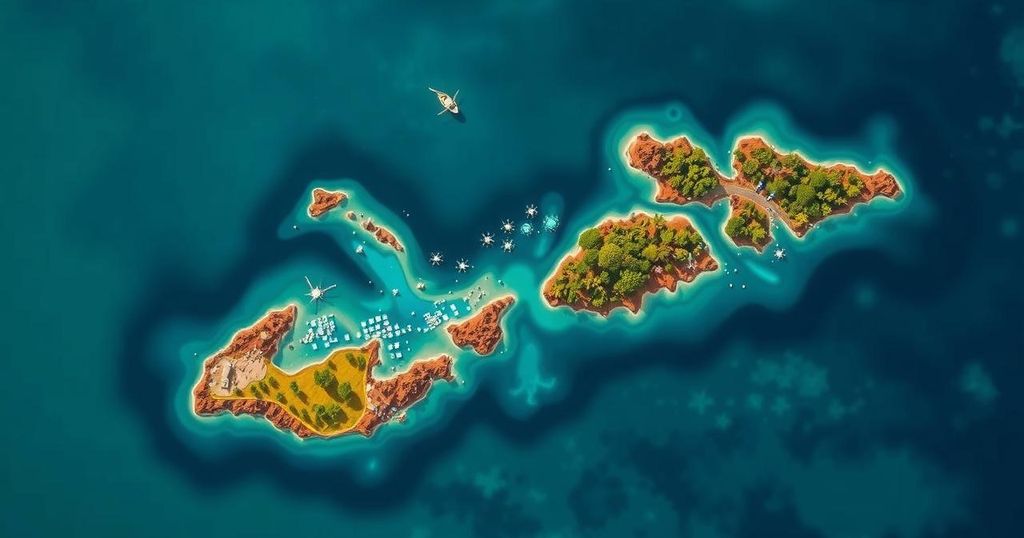Small island states have urged the International Court of Justice to consider obligations under broader international law regarding climate change, beyond existing treaties. In a significant court session, representatives from affected countries emphasized legal accountability for high-emission nations, presenting personal accounts of climate impact. The discussions highlight the urgent need for enforceable climate obligations and reparations from major emitting states to ensure future generations’ survival and cultural heritage.
On December 2, 2024, small island states impacted by climate change petitioned the International Court of Justice (ICJ) in The Hague to expand its consideration beyond existing climate treaties, like the Paris Agreement, in determining the obligations of high-emission UN member states. Ralph Regenvanu, Vanuatu’s special climate envoy, highlighted that a few nations responsible for a significant share of global emissions have violated international laws. During the hearings initiated by the Pacific Islands Students Fighting Climate Change and supported by Vanuatu, representatives from affected countries articulated that climate agreements do not preclude the application of broader international legal standards.
Attorney General Arnold Kiel Loughman urged the ICJ to enforce accountability by affirming that harmful actions contributing to climate change must have legal repercussions, questioning, “How can the conduct that has taken humanity to the brink of catastrophe … be lawful and without consequences?” Meanwhile, Cynthia Houniuhi, head of the Pacific Island Students Fighting Climate Change, articulated that climate change endangers future generations, severing their connection to ancestral lands. They emphasized that the survival and cultural identity of these populations hinge on the actions taken by major emitting countries.
Countries like the Bahamas provided firsthand accounts of climate change impacts and insisted that those responsible must be held accountable. Attorney General Ryan Pinder remarked that the devastation from Hurricane Dorian resulted in immense economic losses and displaced populations, calling for immediate reductions in global greenhouse gas emissions. Pinder asserted, “It is time for these polluters to pay,” highlighting the urgent need for industrial nations to take significant action and provide reparations for past neglect.
In contrast, Saudi Arabia argued that existing climate treaties sufficiently outline state obligations. However, Pinder contested this view, insisting that climate agreements must be understood in the broader context of public international law. Throughout the proceedings, it became evident that there remains a critical need for establishing robust and enforceable climate obligations across nations, underscoring the precarious situations facing vulnerable island states amid escalating climate crises.
The engagement of small island states with the International Court of Justice stems from the escalating threats posed by climate change, which many of these nations attribute to the actions of higher-emission countries. The ICJ case has gained momentum as island nations seek recognition of their plight and demand accountability from large polluters for contributing to climate crises that jeopardize their existence. This legal action seeks to reinforce the enforcement of international law in climate policy, reflecting the desire for equitable measures that ensure the survival and rights of future generations.
The proceedings at the International Court of Justice represent a pivotal moment for small island states facing existential threats due to climate change. The call for broader legal accountability beyond existing climate treaties underscores the need for robust enforcement of international laws that protect vulnerable nations. As discussions unfold, the testimonies from affected countries highlight the pressing moral and legal obligations of high-emission states to mitigate environmental damage and support reparations, ensuring that future generations retain their heritage and land. The outcome of this case may set crucial precedents for climate justice and international accountability in the face of a global crisis.
Original Source: www.ipsnews.net






